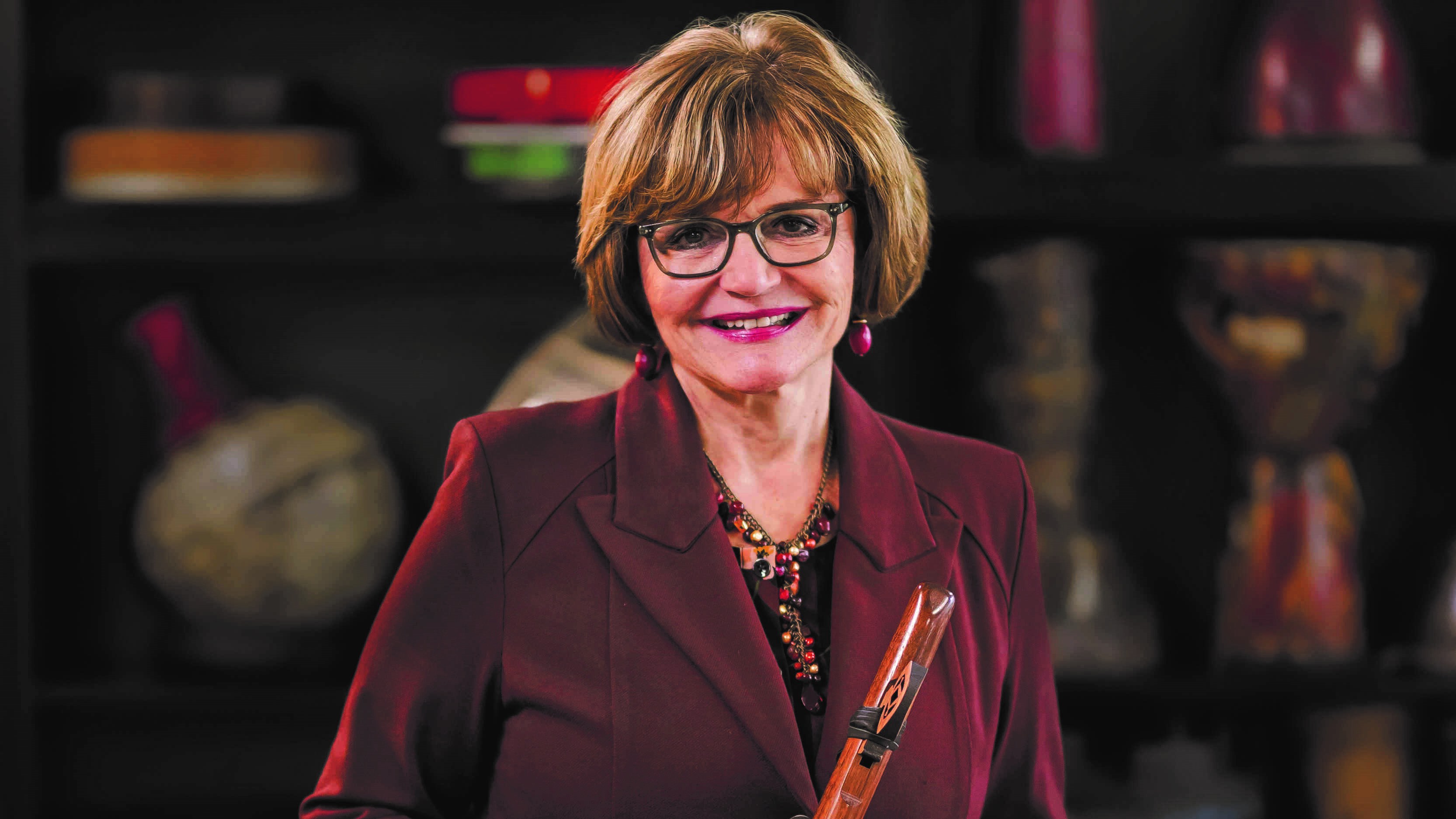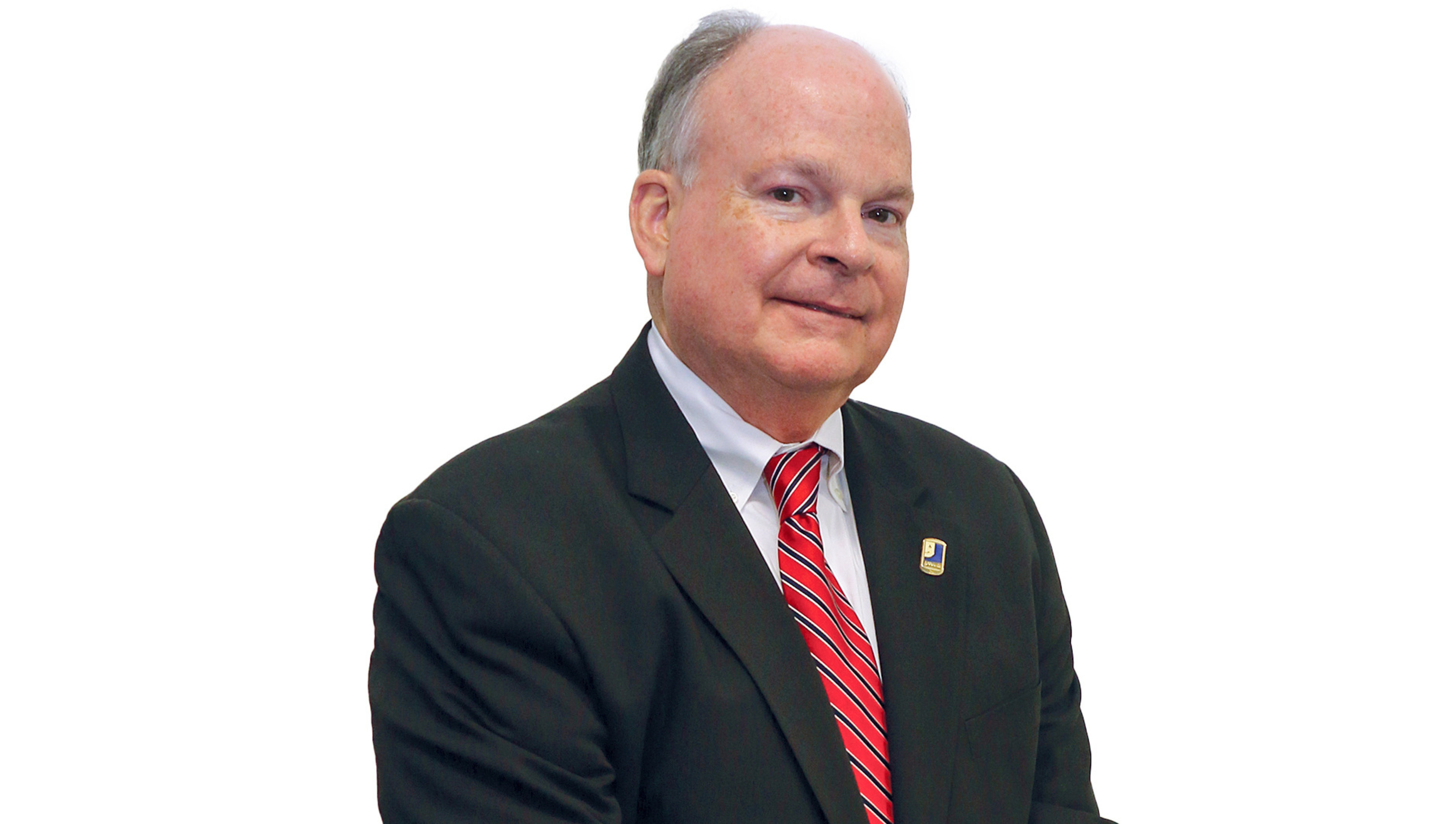Barbara Reuer on The Magic of Music Therapy
Barbara Reuer entered the music therapy field when it was new and has spent her career promoting its benefits


Profit and prosper with the best of Kiplinger's advice on investing, taxes, retirement, personal finance and much more. Delivered daily. Enter your email in the box and click Sign Me Up.
You are now subscribed
Your newsletter sign-up was successful
Want to add more newsletters?

Delivered daily
Kiplinger Today
Profit and prosper with the best of Kiplinger's advice on investing, taxes, retirement, personal finance and much more delivered daily. Smart money moves start here.

Sent five days a week
Kiplinger A Step Ahead
Get practical help to make better financial decisions in your everyday life, from spending to savings on top deals.

Delivered daily
Kiplinger Closing Bell
Get today's biggest financial and investing headlines delivered to your inbox every day the U.S. stock market is open.

Sent twice a week
Kiplinger Adviser Intel
Financial pros across the country share best practices and fresh tactics to preserve and grow your wealth.

Delivered weekly
Kiplinger Tax Tips
Trim your federal and state tax bills with practical tax-planning and tax-cutting strategies.

Sent twice a week
Kiplinger Retirement Tips
Your twice-a-week guide to planning and enjoying a financially secure and richly rewarding retirement

Sent bimonthly.
Kiplinger Adviser Angle
Insights for advisers, wealth managers and other financial professionals.

Sent twice a week
Kiplinger Investing Weekly
Your twice-a-week roundup of promising stocks, funds, companies and industries you should consider, ones you should avoid, and why.

Sent weekly for six weeks
Kiplinger Invest for Retirement
Your step-by-step six-part series on how to invest for retirement, from devising a successful strategy to exactly which investments to choose.
Who: Barbara Reuer, PhD, MT-BC, age 70
What: Music Therapist
Where: San Diego
From just $107.88 $24.99 for Kiplinger Personal Finance
Become a smarter, better informed investor. Subscribe from just $107.88 $24.99, plus get up to 4 Special Issues

Sign up for Kiplinger’s Free Newsletters
Profit and prosper with the best of expert advice on investing, taxes, retirement, personal finance and more - straight to your e-mail.
Profit and prosper with the best of expert advice - straight to your e-mail.
How does music therapy work? Music therapy is music as an art, but it is also a science, and it’s applied in a way that improves the quality of life and meets the needs of children and adults with disabilities and illnesses. The therapist structures music-based experiences to work toward specifically prescribed goals. If you’re working with a child with special needs in school, you might use music to work toward enhancing communication, academic, motor or social skills. If a child with autism is afraid to interact, you use music to teach how to reach out and shake hands and say hi and goodbye, using songs to help.
For someone with dementia, on the other hand, who may not communicate, we know that we can use songs to engage them. Music with older adults is magical. They may remember you and forget you the next minute, but you can start a song that they relate to and they can sing all five verses. The part of the brain that’s affected by Alzheimer’s doesn’t affect the processing ability for music memory.
How long has music therapy been recognized as a mental health treatment? The first association was founded back in 1950, but it really began in the 1940s after the end of World War II. There were a lot of veterans in hospitals suffering from PTSD, so musicians, teachers and bands would come into the hospitals to work with them. I got into the field around 1976. Prior to that, music therapists worked mostly in mental health facilities, large mental health hospitals and facilities for what we would now call neurodivergent clients — people who had developmental disabilities. In 1975, a special education law created access to education in schools for children with disabilities and brought music therapists into schools. And then in the ’80s and ’90s, music therapists became accepted to work in hospitals and hospices. But in between that time, they were in nursing homes and skilled nursing facilities.
Will insurance pay for it? It’s really hard to get insurance for music therapy services, but in states that recognize music therapy licensure, some policies cover it. About one-fourth of music therapy services receive reimbursement from private insurance, Medicaid, or Medicare.
What is Resounding Joy’s mission? Resounding Joy was founded because there was a need, especially in the adult community. But we also provide services to children who are homebound, in hospices or hospitalized. And we provide “Shine and Sing” groups for children with developmental disabilities. We’ve just received some grant funding to do programming for children experiencing mental health issues and traumatized children that have been molested or trafficked. We’re based in San Diego, and we provide services throughout the county. We have three music therapists and a person that we call the director of engagement who handles grants, plus about 65 volunteers. Because of COVID-19, we had to do virtual programming; all our volunteer programs were shut down, and we just started opening that up again.
Do you also have another company? I also started a music therapy and wellness agency called MusicWorx when I first moved to San Diego. We now have some 100 music therapists, and we’re in every agency imaginable in San Diego. We’re changing lives every day — lots of lives. And I have a great team between the two companies.
What motivated you to pursue music? My brother Ronnie was born with muscular dystrophy. He succumbed to pneumonia and passed away when he was 8. I was 18, a freshman in college, and I was headed toward a music degree and teaching. I always knew I wanted to do something special to honor him. He loved music, and we would always sing songs and do anything we could to provide him with an early education because back then, children with special needs such as his weren’t allowed to go to school. When I was a junior, I learned about music therapy, and I instantly knew that’s what I was going to do.
Profit and prosper with the best of Kiplinger's advice on investing, taxes, retirement, personal finance and much more. Delivered daily. Enter your email in the box and click Sign Me Up.

Emma Patch joined Kiplinger in 2020. She previously interned for Kiplinger's Retirement Report and before that, for a boutique investment firm in New York City. She served as editor-at-large and features editor for Middlebury College's student newspaper, The Campus. She specializes in travel, student debt and a number of other personal finance topics. Born in London, Emma grew up in Connecticut and now lives in Washington, D.C.
-
 Dow Leads in Mixed Session on Amgen Earnings: Stock Market Today
Dow Leads in Mixed Session on Amgen Earnings: Stock Market TodayThe rest of Wall Street struggled as Advanced Micro Devices earnings caused a chip-stock sell-off.
-
 How to Watch the 2026 Winter Olympics Without Overpaying
How to Watch the 2026 Winter Olympics Without OverpayingHere’s how to stream the 2026 Winter Olympics live, including low-cost viewing options, Peacock access and ways to catch your favorite athletes and events from anywhere.
-
 Here’s How to Stream the Super Bowl for Less
Here’s How to Stream the Super Bowl for LessWe'll show you the least expensive ways to stream football's biggest event.
-
 What to Know About New Medicaid Cuts: Is Your Local Hospital Closing Soon?
What to Know About New Medicaid Cuts: Is Your Local Hospital Closing Soon?Tax Policy Trump’s ‘One Big Beautiful Bill’ is now law, and rural hospitals across the U.S. are on the chopping block.
-
 Trump’s Tax Cut Risks Your SNAP, Medicaid Benefits
Trump’s Tax Cut Risks Your SNAP, Medicaid BenefitsTax Cuts The GOP budget blueprint could slash lifesaving programs for millions of U.S. households.
-
 Medicaid Managed Care Groups Under Congressional Investigation
Medicaid Managed Care Groups Under Congressional InvestigationLawmakers question Medicaid MCOs over their high rates of prior authorization denials.
-
 Hospitals Say Increased Medicare Reimbursement Is Not Enough: Kiplinger Economic Forecasts
Hospitals Say Increased Medicare Reimbursement Is Not Enough: Kiplinger Economic ForecastsEconomic Forecasts Medicare will bump up hospital reimbursements by 3.1% in 2024, but the industry says it's not enough as it comes off its worst financial year of the pandemic.
-
 More Weight-Loss Drugs, Like Ozempic, are in the Works: Kiplinger Economic Forecasts
More Weight-Loss Drugs, Like Ozempic, are in the Works: Kiplinger Economic ForecastsEconomic Forecasts Pharmaceutical companies are developing more weight-loss drugs similar to Ozempic, but these injectables are still expensive.
-
 Spring Cleaning? What to Donate to Goodwill
Spring Cleaning? What to Donate to GoodwillInterview If you're wondering what to donate to Goodwill, senior retail consultant, Bill Parrish, tells Kiplinger what's always in demand.
-
 Amazon launches RxPass — its new subscription service for medication
Amazon launches RxPass — its new subscription service for medicationAmazon's new program, RxPass, lets Prime members ship prescription medications to their homes for just $5 a month.
-
 Inflation Reduction Act Boosts Obamacare Tax Credit
Inflation Reduction Act Boosts Obamacare Tax CreditTax Breaks Enhancements to the premium tax credit are extended for three more years under the Inflation Reduction Act.